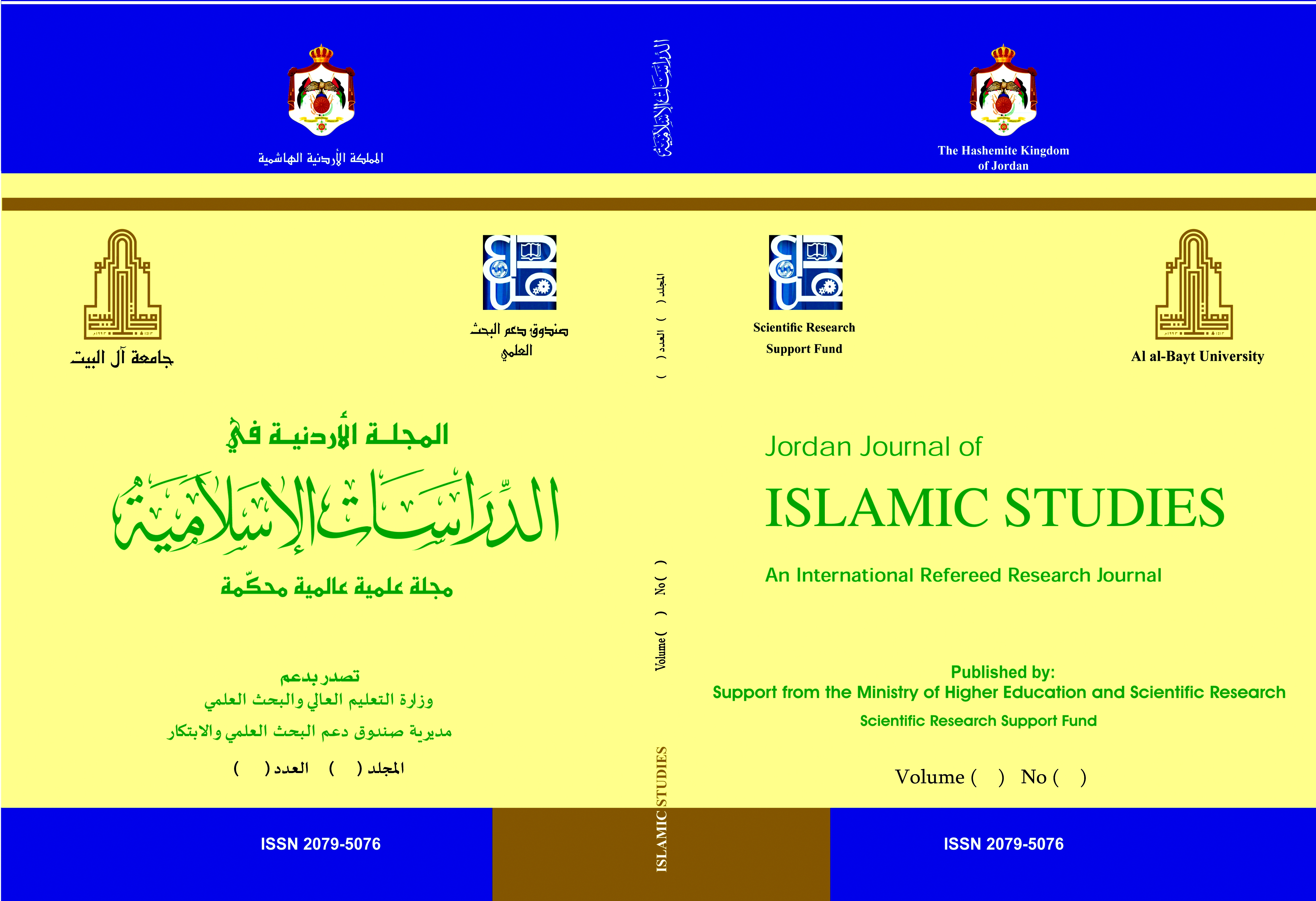Jordan Journal of Islamic Studies

Abstract
This study aims to investigate how the jurists and the Qur'anic commentators interpret the concept of nushūz (disobedience) of the husband and wife in the Qur'an and to attempt to extrapolate the views of interpreters and scholars in interpreting, analyzing, and criticizing the Qur'anic verses using the deductive and inductive methodologies. The study has concluded that the meaning of nushūz is that the husband or the wife fears that their spouse might start a forbidden relationship (infidelity) with another person; thus, the other spouse should make serious attempts trying to find a solution to this possible marital infidelity according to the steps that were clarified in the Qur'an. In addition, this study concluded that the meaning of nushūz is not what the Qur'anic commentators interpreted as arrogance or unwillingness, specifically the wife's disobedience, which was interpreted as the wife's disobedience to her husband and her superiority over him. In light of this new interpretation, the previous jurisprudential rulings that were based on the previous understanding of nushūz should be reconsidered
تسعى هذه الدراسةُ إلى التعرّف على نظرةِ السادةِ المُفسرين والفقهاءِ بخصوص معنى نشوزُ الزوج ونشوز الزوجة الذي ورد في القرآن الكريم، ومحاولة ِاستقراء آراء المفسرين والعلماءِ في تفسيرِ الآياتِ المتعلقة بها وتحليلها ونقدها باستخدام المنهجين الاستنباطي والاستقرائي. وخلُصت الدراسة إلى أنّ معنى النشوز هو خوفُ الزوجِ أو الزوجةِ من بدء علاقةٍ مُحرمةٍ مع شخصٍ آخرَ يقومُ بها أحدُ أطرافِ العلاقةِ الزوجية، وعلى الطرف الآخرَ التحرّكَ بجدّية لإيجاد حلٍّ لهذه الخيانةِ الزوجيةِ المُحتملة بالطرقِ التي وضحّها القرآن الكريم، وأنّ النشوزَ ليس كما عرّفه بعض السادةِ المُفسرين بأنه الاستعلاءُ أو عدمُ الرغبةِ وتحديدًا نشوزُ الزوجة، والذي تم تفسيرهُ باعتباره عدمُ طاعةِ الزوجةِ لزوجها واستعلائها عليه، مما يُرتب إعادة النظرِ في جميع الأحكام الفقهية التي بُنيت على أساس فهم المُفسرين لدلالة تلك الآيات.
Recommended Citation
Alqudah, Ghaith
(2023)
"Analytical Study for nushūz of Husband and Wife according to Qur’anic Commentators and Jurists and its Impact on the Legal Rulings تفسيرُ نشوز الزوج والزوجةِ عند المفسّرين والفقهاء وأثره على الأحكامِ الفقهيةِ المتعلقةِ بذلك,"
Jordan Journal of Islamic Studies: Vol. 19:
Iss.
2, Article 2.
Available at:
https://digitalcommons.aaru.edu.jo/jois/vol19/iss2/2

